As a child what were your early influences towards cinema? Art, literature, graphics, photography?
My earliest memories are of reading. And of watching films. I grew up in the heart of Bombay’s film land, around Grant Road, where all the film distribution offices used to be, and where there was a cinema hall on every turn of the street. My parents, specially my mother watched films regularly. I grew up watching 1-3 films a week, this in the time when there was no television. And reading at least 3-5 books a week, thanks to the multitude of lending libraries around. Art was drawing classes in and outside school, or the embroidery and crochet the women around me were so adept at.
How did you first become interested in film direction?
As a child, reading film magazines, I would often play at giving interviews myself. I play-acted at being an actor. I had no concept of a film director’s job. Just after college, I got a role at FTII in a student diploma exercise. After that, I acted in several student exercises. But from my very first experience of a film shoot, I was clear that I did not want to be an actor. I hated being instructed. I knew that I had to be the one giving instructions.
What steps did you take to train yourself?
I tried for the FTII entrance but did not get through the first time, in the written exam. I got through in the second attempt, a year later. But looking back, coming to FTII seems like part of a journey I had already begun some time ago. While in college, I was sure I wanted to be a journalist. I was very disappointed when I was not able to take the course after 12th and had to wait until graduation. In college, I was part of the debating society, the poetry club; writing really adolescent poetry full of pain and longing. After college, I assisted on some corporate films, until I found my way to FTII.
Have you assisted anyone? How does it help one?
I have not worked as an assistant director, but worked in several capacities on different projects until quite recently. Writing dialogue, screenplays, working as an associate, working as a fixer on international documentaries that involves everything from research and interviews to production control, since the crews are so small. Writing and direction are lonely jobs in between films, and it has been very useful to me to be busy with other people’s work in that period, both financially and in terms of experience. If you can submit your own directorial instincts, to someone else’s vision for some time, you can also learn a lot for your own projects.
How did your first film project come about? Tell us something about the experience.
My daughter was growing up in a gated residential complex. It was so different from my own childhood that I found I wanted to say something to her and her friends. I submitted the story to the Children’s Film Society of India. They liked the story, and they asked me for the script. And then the budget, etc. I was making the film several years after my diploma, so I was nervous, hypersensitive, a little unsure on the sets. Plus, we had a really low budget, so that made things more difficult.
How do you decide on a film subject. What are your inspirations?
I like to tell stories about people, relationships, what is said and what remains unsaid.
Is film direction intuitive or is it something you learn?
I think story telling is intuitive. But film direction is something you learn, at film school, on jobs, with experience. To me, it is one of the mediums of telling a story. The craft is something that one needs to hone.
Do you think the audience is perceptive about how a director establishes a mis en scene in the sense of time and space?
Sometimes, when I see a film again that I had seen as a child, or as a non-film professional, I realize suddenly why I had been moved by a scene or a shot or an expression in particular, why certain films held my fascination. Now I can see the craft that went into the film, and understand the reasons why it moved me. So yes, I do think that a well crafted film does affect the audience, even if they may not know technically why it does so.
Film technology is continuously changing. Do you think it affects you as a director, in the way you want to tell stories.
Yes, I think technology changes not only the way you execute stories, but to some extent your thought process itself. I know that the process by which I write on the computer is different from the way I used to write long hand, and that has affected my writing itself. The new digital technology excites me sometimes, in the context of some stories, which I think can be told so much more powerfully because of the ease and intimacy afforded by the digital cameras. But sometimes, you just want to stay with film. Like we decided to do KAPHAL on 16 mm.
Tell us about your latest film ‘KAPHAL : Wild Berries’?
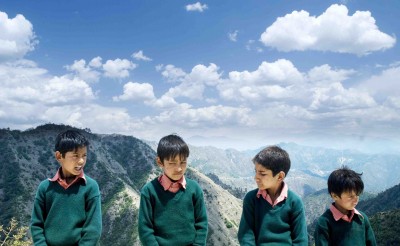
KAPHAL-Wild Berries is a feature film for children. It is based in a village in Garhwal. It is about the strain in relationships which are perforce, long distance. It is about 2 kids who miss their father when he is not there, and find him a nuisance when he comes back.
You also produced ‘Kaphal’. Was it difficult juggling two high-involvement jobs together?
My experience as a fixer on international documentary crews has made me quite used to the idea of juggling multiple jobs together. It is also the way we worked at FTII, taking on a lot of tasks ourselves, apart from the creative job of writing and directing. So I don’t find it difficult. It is physically tiring at times.
You have also produced the TV Series ‘India Reborn’. How was the experience? How did that work come along?
I was an associate producer on one of the episode of the Canadian TV series, ‘India Reborn.’ I worked on the episode on the Indian economy. I worked with 2 old school journalists, so it was a very very valuable experience. We travelled through the country, and did some amazing stories from a little English medium school for children of labourers being run by one school teacher in Bangalore to jet-setting with Mr. Vijay Mallya. The job came to me through recommendation, since I had already worked on many documentary projects before that.
Your favorite films or directors? At least two of them?
Always, any day, any time, Woody Allen. And Hrishikesh Mukherjee. These are film makers whose films I can watch any time. Otherwise, as you would know, there is a long list of the usual suspects. But 2 films will always be special to me. ‘Autumn Afternoon’ by Ozu and ‘8&1/2’ by Fellini. These were the first films I saw at the FTII, even before I entered it, and I was wonder struck.
What helps a film more the story or marketing?
To me, the story is the film, at least the backbone of it. But without marketing, the film remains unseen, the story remains untold. What do you do without marketing? For any kind of film, you have to understand its audience, it’s niche, and promote it there, whether it is festivals, whether it is the school/NGO/university circuit, whether it is the traditional theatrical release.
Any hurdles you have encountered in your journey. Things that are blocks in a achieving your vision while making your film.
The major block I think is the budget. I have never been able to shoot a film for more than 30 days. And I hate the stress of being hurried. I would love, more than anything else, to have a shoot schedule of 100 days. I would settle for even 50.
Do you often get all that is in your wish list or is it a hard bargain every time?
I don’t think I have been in the position to get all that is on my wish list. Equipment has always been a compromise, and shooting days. But I think I have been lucky with my crew, I have always been able to work with the people I want. I have worked with Hemanti (Sarkar) my editor and Vivek (Shah) my cinematographer, since our first year at FTII, our practical group. I am not even sure whether I would be able to make a film without them. And on KAPHAL I was also lucky with my actors, each one so capable and above all, generous and supportive.
What is in the kitty now?
I am writing a script that Vivek (Shah, cinematographer, and my husband) will direct. And mulling over an idea for myself. Both these films as of yet, have no financier, so it’s a long journey.
Any advice to the inspiring directors?
I think most of the younger directors I know are good enough to give me advice. I think younger people these days know how to handle themselves better in the real world, we took a long time to get aligned with realities. They also seem more comfortable with the medium, less in awe of it.
Any memorable blunders?
Several. I have been socially awkward, still am, so there have been times when I have not been able to voice my opinion in a professional capacity, as strongly as I should have. These are the moments I regret.
Your dream project?
I would love a shoot on a set. Cool weather. No early morning calls. 100 days of shoot. All the rigs and lights one wants. Lunch breaks on time. Good food. Happy actors. Happy crew. In short, a picnic.
Who would you like to take out for dinner?
My first choice for dinner partner is always my daughter and her friends, we giggle a lot, make smart aleck remarks, eat a little but eat well.
What are you listening to right now? And most recent book? And Movie?
I am musically challenged. I react to music emotionally, but have no memory for it, or understanding of it. I don’t even like to listen to music too much. Right now my favourite songs are ‘Badtameez Dil’, ‘Tu mere Agal Bagal hain’. I am still listening to ‘Tumse Hi’ from ‘Jab We Met’. So, Pritam. I have just been re-reading Edith Wharton’s New York novels – House of Mirth, Custom of the Country and Age of Innocence. I watched ‘Yellow’ and ‘Mahanagar’ recently, I hope more and more films are released with subtitles, I like watching regional films. At home, these days, we have an Alfred Hitchcock festival going .

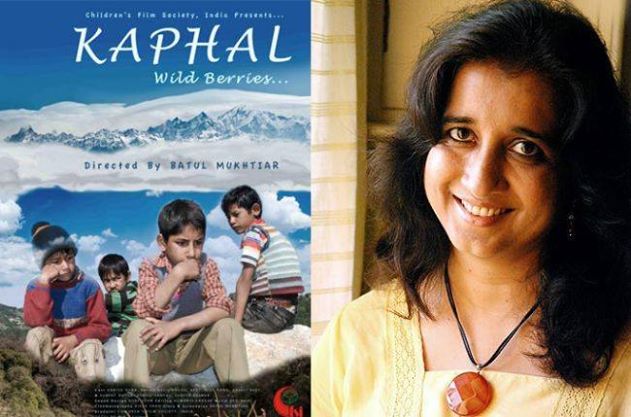
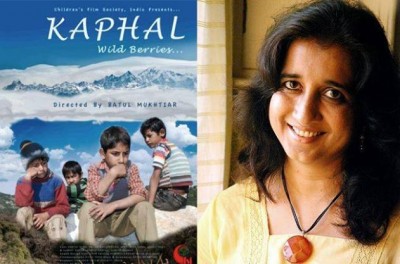
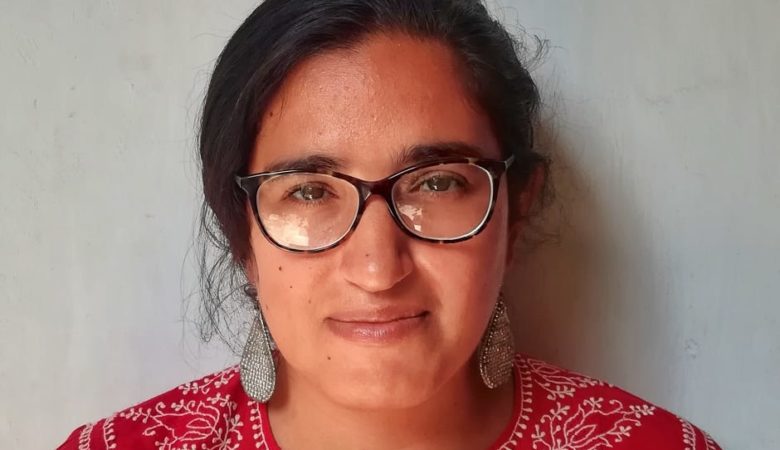
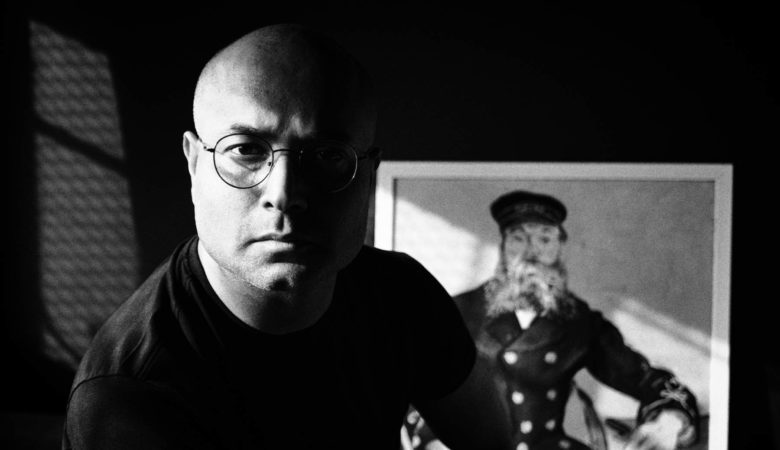
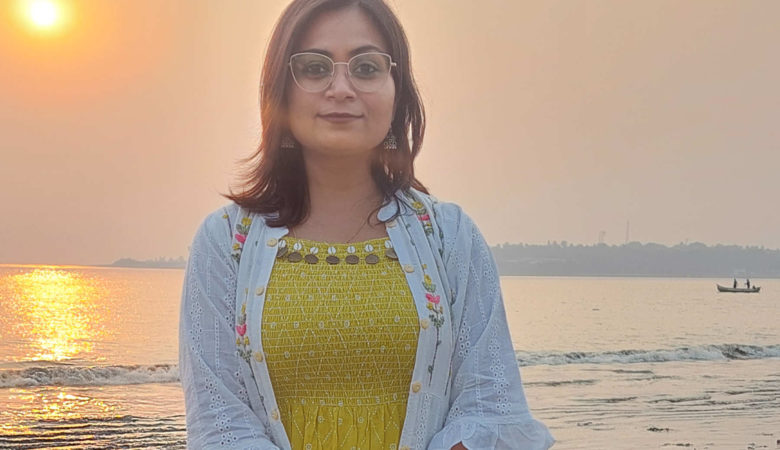
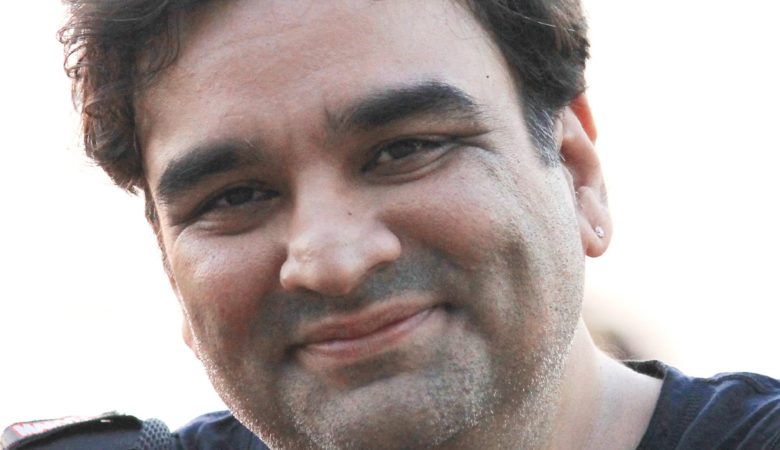




Kudos to Batul ! you made a fantastic film ! congratulation !
Loved that interview! 🙂
Thanks, Sampad, Dustedoff. 🙂
Great interview, so candid, funny and entertaining! Any interest in showing your film in the US? Please p.m. me..do you remember me for long ago, your blogging friend?
A great interview.. loved your responses, and the clarity of thought. May this be the first with many more to come, Batul.